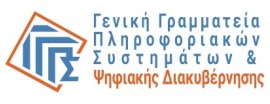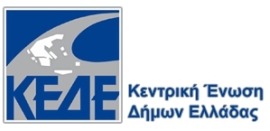
E-Government
The Master's program in modern, digital Public Administration
Mode of Study
Distance Learning
Start Date
October 2025
Duration
3 Semesters (up to 6 for part-time study)
ECTS
90 Credits
Application Deadline: 7 September!
Apply91%
EMPLOYMENT RATE
E-Government
Information and Communication Technologies (ICT) offer enormous possibilities for improving the operations of public services, reducing their costs, improving citizen service, and more generally the value offered to society, designing and implementing better and more effective public policies, but also closer transparent communication and cooperation between state bodies and citizens.
But the experience in our country, but also internationally, shows that the utilization of these possibilities is a highly complex task, which requires close cooperation of different scientific specialties (technological and administrative), both from the internal environment of the public sector, and from external recourses (IT companies, consulting services, etc.).
The development of e-government is an important priority in our country, but also in the European Union in general, for this reason the needs that arise in this area are great, as are the relevant markets that are opened for businesses of various related objects.
Objectives of the Program:
- Providing specialized knowledge and methodologies in the fields of Electronic Government.
- Development of academic abilities and skills of graduates in the field of Electronic Government.
- Application of the above knowledge, skills and abilities, through the learning processes of teaching, tutorial exercises, assignments and research papers, etc.
- Strengthening the communication, collaboration and responsibility management skills of the student body through group assignments, group presentations and other collaborative forms of academic study and academic work.
- The preparation for doctoral level postgraduate studies in the subject of the program.
- The promotion of science and research in the subject of the program.
Skills Acquired:
- High level of knowledge and skills in the field of e-government.
- Knowledge of many forms of information systems that can be developed in public sector bodies, such as information systems for internal support, provision of electronic information to citizens, electronic transactions between citizens and the state, electronic democracy, participation and consultation, utilization of social networks (social media), open government data, interoperability, etc.
- Ability to creatively and constructively participate in development projects of various forms of information systems in public sector bodies with various roles.
All postgraduate programs of the University of the Aegean are recognized and accredited by the Greek state.
Learn More
Our partners and graduates said:
Collaboration Opportunities with Major Companies





Press References
Flexible Study Options
Full-Time Study
- 3 semesters (one semester for thesis)
- Evening online lectures
- Teaching with modern digital means
- In-person, only the exams at the end of each semester
- Gradual tuition fee payment
- Scholarship opportunities
Part-Time Study
- Specifically for working professionals
- Fewer courses per semester
- Up to 6 semesters (one semester for thesis)
- Same rights and obligations as full-time students
Application Deadline
Until September 7, 2025
- 50days
- 22hours
- 16minutes
remaining until the deadline
Teaching Staff
Videos

Program Information
Program Information
Distance Learning
Courses are taught through synchronous distance learning using a platform that supports the educational process during all weeks of study for the first two academic semesters.
At the end of each of the first two semesters, in-person final exams are conducted.
The method and procedure of the final examination for each course are determined by the responsible instructor in accordance with the provisions of the Graduate Studies Regulations of the Postgraduate Program.
Full-Time / Part-Time Study Program
The full-time study program lasts for three academic semesters and is implemented in a blended learning environment with standard combinatorial forms of education, which include electronic contemporary learning processes utilizing a relevant platform that supports the educational process throughout all weeks of study in the first two academic semesters. During the third semester, only a dissertation is completed. Attendance of classes and participation in all kinds of educational activities, such as assignments, exercises, etc., is mandatory.
The duration of study in the postgraduate program is set at three academic semesters, which includes the time for the completion of the dissertation. The maximum allowed time for the completion of studies is set at six academic semesters.
For working students who wish to, part-time study is available. Students in this category must be employed for at least 25 hours per week and must provide a relevant employment contract or employer's certificate.
Part-time study is also available for non-working students who are unable to meet the requirements of full-time study for health reasons, family reasons, military service, force majeure, etc. Interested parties must submit a request to the Department Assembly before the start of the program's classes. The duration of part-time study cannot exceed six academic semesters.
Course List
1st Semester
2nd Semester
3rd Semester
| Code | Course Title | Type | ECTS |
|---|---|---|---|
| 6000 | Master's Thesis | Mandatory | 27.5 |
| 6009 | Internship | Optional | 2.5 |
| 6010 | e-Government Summer School | Optional | 2.5 |
Part time Enrollment Course List
1st Semester
2nd Semester
3rd Semester
4th Semester
5th Semester
| Code | Course Title | Type | ECTS |
|---|---|---|---|
| 6000 | Master's Thesis | Mandatory | 27.5 |
| 6009 | Internship | Optional | 2.5 |
| 6010 | e-Government Summer School | Optional | 2.5 |
Course Instructors
| Course Title | Semester | Instructor |
|---|---|---|
| Digital Business Management | 1st | Dr. Dimitrios Sarantis |
| Information Systems in Public Administration | 1st | Assistant Professor Alexopoulos Charalampos |
| e-Government Ι (Services and Infrastructures) | 1st | Professor Euripidis Loukis , Sapounas Ioakim |
| Information Systems Security | 1st | Associate Professor Kyriakos Kritikos |
| e-Government ΙΙ (Open and Collaborative Government) | 2nd | Professor Yannis Charalampidis |
| Project Management and Information Systems Development | 2nd | Assistant Professor Diamantopoulou Vasiliki |
| Information Law | 2nd | Professor Mitrou Lilian |
| European and Greek Interoperability Framework | 2nd | Assistant Professor Alexopoulos Charalampos |
| Master's Thesis | 3rd | |
| Internship | 3rd | Assistant Professor Alexopoulos Charalampos |
| e-Government Summer School | 3rd | Assistant Professor Alexopoulos Charalampos |
Cost
The tuition fees for the entire program are set at the amount of €3,000.
The tuition fees are paid in three installments:
- (a) €500 (no later than 15 days after the announcement of the results),
- (b) €1,000 upon registration in the 1st semester (early October), and
- (c) €1,500 at the beginning of the 2nd semester (February).
The timely payment of the 1st installment is a prerequisite for attending the program.
Postgraduate students are required to promptly settle all their financial obligations.
It is noted that in case of non-registration or discontinuation of studies, the portion of the tuition fees that has already been paid will not be refunded.
Scholarships
The postgraduate program may offer a number of scholarships based on academic criteria to full-time students, according to a decision by the Assembly.
This decision specifies the amount of the scholarships, the required documentation, the scholarship awarding process, and the obligations and rights of the scholarship recipients.
Admission Requirements
The postgraduate program accepts holders of a first-cycle degree from Higher Education Institutions (Universities and Technological Educational Institutes) of Greece, or from equivalent recognized institutions abroad, as recognized by the Hellenic National Academic Recognition Information Center (DOATAP).
Additionally, graduates from the Higher Military Educational Institutions of the country (article 88 of law 3883/2010, Government Gazette 167 A), the Hellenic Police Officers School (article 38 of law 4249/2014, Government Gazette 73 A), the Hellenic Fire Academy's Officers School (article 69 of law 4249/2014, Government Gazette 73 A), and the Coast Guard Officers School (article 1 of Presidential Decree 75/2018, Government Gazette 145 A) are also accepted. Moreover, graduates of the National School of Public Administration and Local Government are accepted.
Furthermore, final-year students from domestic institutions are accepted under the condition that they complete their degree requirements and provide relevant certification by the registration date of the postgraduate program.
Required Documents
Applicants are required to fill in a candidacy application form, attaching the following documents:
- A copy of their ID or passport
- A CV
- A copy of their degree/diploma or a certificate of studies completion
- Peer-reviewed publications, if there are any
- Certificates of professional or research activities, if there are any
- Two references
- A copy of the candidate’s undergraduate dissertation or its title and abstract if it has not been completed; in case the candidate was not required to write a dissertation during their undergraduate studies, they should mention so in writing
- Proof of English language competency equivalent to or higher than B2 level (according to the Common European Framework of Reference for Languages)
- Any other document that the candidate believes it might support their application
The application and all digital copies of documents must be submitted online on the “Nautilus” platform (https://nautilus.aegean.gr/). Hard copies can be submitted in person during admission.
Study Regulations
Circulars related to the Study Regulations of the program:

















